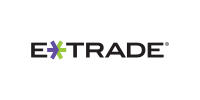What Type of Stock Brokerage Account Is Right for You?
Contents
Once you’ve come to the conclusion that it is time to start investing for your future instead of accepting the measly, below inflation, interest rates currently available on cash in current or savings accounts, you’ll have to open an account with a stock broker.
In today’s digital world you have a significant choice of different stock broking services. Whichever you choose be careful to compare and contrast fees, both fixed, each time you buy and sell stocks and any annual charges, which can be a percentage of the overall value of your stock market and/or funds investment portfolio.
These will also often vary even with the same provider depending upon which kind of account or tax efficient wrapper you choose. Because different stock brokers have fee and charges structure which can be slightly complex, you’ll have to try to forecast what kind of stock market investor you will be. How much will you be realistically able to invest every month or year, how often will you buy stocks, how many different stocks etc. Your final charges will depend upon all of these factors.
Don’t worry if you don’t know what your situation will be in 5,10 or 20 years. You can always switch broker if another has more attractive conditions based on your transactions and portfolio and should review the market every year or two. To start with have the first couple of years in mind when assessing charges and fees.
Online Stock Broker
Opening an account with an online stock broker is the most popular option for those who wish to invest in the stock market. There is quite a variety in the services offered, with some no frills and only offering a stock broking service and perhaps a range of funds but no educational or analysis content and other extras.
If you think you might want to invest in stock from other stock exchanges in other countries, check if the online stock brokers you are considering offer dealing on these exchanges. If you are interested in funds as well as individual stocks, something which is often a good approach to spread risk for new investors, also take care to review the range available. Some brokers have a lot of choice around funds while with others it’s more limited.
Stock Broking Apps
A new breed of fintech companies now offer budget stock broking services in app-only form. These are often the cheapest way to invest in the stock market, with transactions costing just a couple of pounds or even less. However, the choice of stock markets available, range of funds etc. can still be limited when investing through these new alternatives. However, the most successful are developing quickly and improving their range of available stocks, other investment classes and services and features so worth reviewing.
ISAs & SIPPs
If you are investing from the UK you might want to protect your investments from tax by putting them in an ISA savings or SIPP pensions wrapper stock broking account. Make sure the stock brokers you are considering opening an account with offer these wrappers and their terms and charges. They are sometimes different to those of normal stock broking accounts and usually vary depending upon the value of your total investment portfolio.
Do You Want Professional Advice From Your Stock Broker?
A further consideration when deciding on a stock broker is if you feel you need professional advice or not when taking investment decisions? The service offered by stock brokers and investment platforms can be broken down into two separate categories of an advised or execution only. Often the same stock broker will offer both options.
An execution only stock broking account is exactly that – you tell the stock broker what investments you want to buy and sell and it will execute the transactions on your behalf, charging a transaction fee. Otherwise, unless you have some technical issue with your account you will never actually speak with a human being, with everything managed digitally via your account.
An advised stock broking service includes regular consultations with an IFA (independent financial advisor) who works specifically with the stock broker’s account holders. The IFA will offer stock pick and other investment suggestions such as funds or bonds or possibly even commodity-based investments like certain ETFs. The advice offered will be based on your personal financial situation, investment goals and other considerations such as how long you have until retirement. You’ll still always have the final say on what you invest in and how much you invest but the IFA will help steer you in the right direction.
An option in the middle between an execution only or advised stock broking account would be to open an execution only account but to hire an IFA independently. This could be because you have a strong reference you trust for a particular IFA or simply because you feel more comfortable separating things.
Once you’ve decided on all of those factors and settled upon a stock broker that has the fee structure, choice of investments and value added services you are happiest with, you will just have to complete some paperwork and you’ll be ready to go. You’ll be asked to provide personal information such as proof of identity and address and proof of income. That information is a legal requirement for stock brokers as a safeguard against money laundering or other kinds of financial fraud.
Once you’ve submitted the forms and supporting documents you should have your new stock broking account all set up, ready for you to log in to and start investing! Take a look at our article on choosing your first ever stocks and investment to give you some ideas and guidelines around what you should keep in mind when taking your first investment decisions.
Recommended Financial Products
Suggested For You
Most Popular Articles
Featured Reviews




